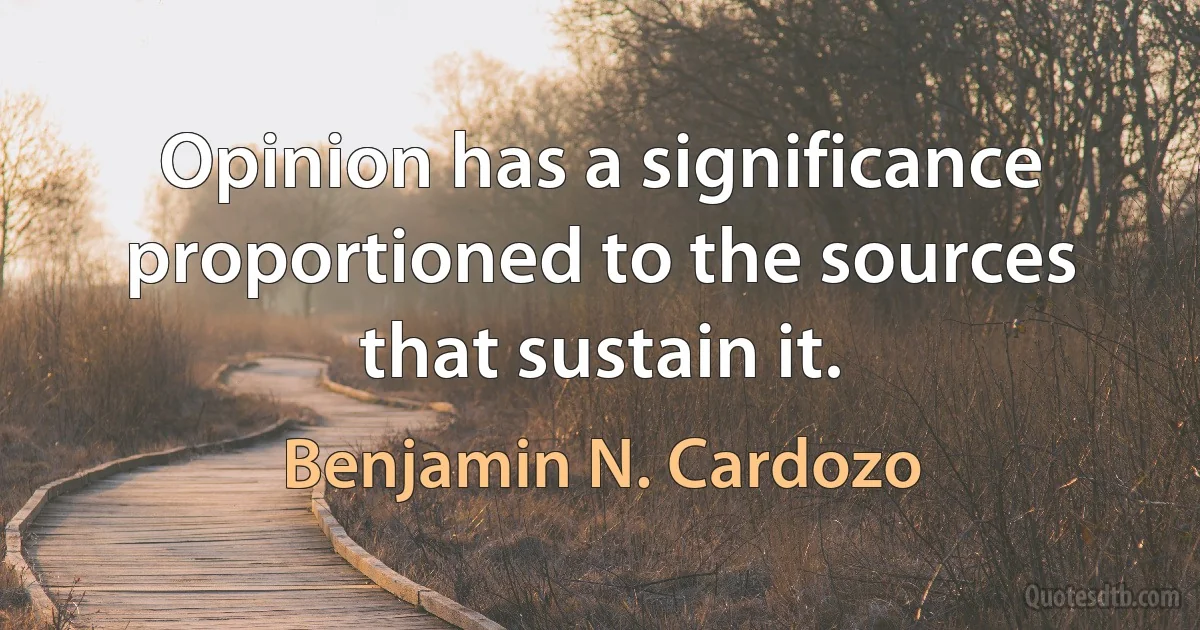Benjamin N. Cardozo quotes - page 3
The law has outgrown its primitive stage of formalism when the precise word was the sovereign talisman, and every slip was fatal. It takes a broader view to-day. A promise may be lacking, and yet the whole writing may be "instinct with an obligation," imperfectly expressed. If that is so, there is a contract.

Benjamin N. Cardozo
I have spoken of the forces of which judges avowedly avail to shape the form and content of their judgments. Even these forces are seldom fully in consciousness. They lie so near the surface, however, that their existence and influence are not likely to be disclaimed. But the subject is not exhausted with the recognition of their power. Deep below consciousness are other forces, the likes and the dislikes, the predilections and the prejudices, the complex of instincts and emotions and habits and convictions, which make the man, whether he be litigant or judge.

Benjamin N. Cardozo
The reconciliation of the irreconcilable, the merger of antitheses, the synthesis of opposites, these are the great problems of the law... We have the claims of stability to be harmonized with those of progress. We are to reconcile liberty with equality, and both of them with order. The property rights of the individual we are to respect, yet we are not to press them to the point at which they threaten the welfare or the security of the many. We must preserve to justice its universal quality, and yet leave to it the capacity to be individual and particular.

Benjamin N. Cardozo


